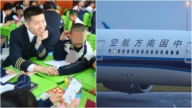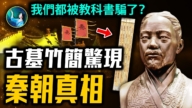【新唐人2013年07月10日讯】中国私募基金的一个特殊的现象是,掌控这些动辄数亿美元资产的掌门人,往往都是出身所谓的“太子党”们,而这些中共的高官后代,在中国如此不透明的专制威权体系里,又缺乏民主社会中应有的合法性,那么可以想像,他们对中国社会经济的影响是令人担忧的。
私募股权投资基金(Private Equity)是指投资于非上市股权,或者上市公司非公开交易股权的一种投资方式。由于私募股权投资的风险较大,信息披露不充分,所以往往采取非公开募集的形式。
根据“清科研究中心”统计,今年上半年共有70支可投资于中国大陆的私募股权投资基金完成募集,其中披露金额的64支基金,共募集62亿多美元。
近几年,中国的所谓红二代——“太子党”们,也前仆后继的进入金融领域,建立了多项私募股权基金。
“博裕投资顾问”的合伙人之一江志成,是前中共党魁江泽民的孙子。据了解,今年“博裕投资”计划筹集15亿美元投资资金。
前中纪委书记吴官正的儿子吴少华,目前的身份包括﹕中国光大(集团)总公司执行董事、副总经理、党委委员,“光大金控资产管理公司”总裁、党委书记等。
而“航天产业投资基金”成立于2010年1月。这家公司的总经理马乐,是政治局委员、副总理马凯的女儿,基金总规模50亿元人民币。
除此之外,中共元老李瑞环的儿子李振福,是“德福资本(GL Capital Group) ”的创办人。
而前中共人大常委会委员吴邦国的女婿冯绍东(Wilson Feng),则是现任总资产达100亿人民币的国有产业投资基金——“中广核产业投资基金”的总裁,他还身兼“上海百联集团”董事。
中共政治局常委李长春的女儿李彤,是“中银国际控股有限公司”的首席执行官,掌管着香港“中银国际(Bank of China International) ”旗下的一家俬募股权基金。
还有,前国务院副总理曾培炎的儿子曾之杰(Jeffrey Zeng),创立了一家隶属于国有金融机构的基金——“开信创业投资管理有限公司”,是“国家开发银行”与“中信资本”共同设立的创业投资管理公司。他担任公司总经理兼管理合伙人。
而现任政治局常委刘云山的儿子刘乐飞,曾担任国企“中国人寿(China Life Insurance) ”的首席投资官,管理着1万亿元人民币的资金。后来担任“中信产业投资基金管理公司 (Citic Private Equity Funds Management) ”董事长、CEO,现任“中信证券”党组书记、和副董事长。
在金融业发展的太子党,还有控制着“上海联和投资”的江泽民长子江绵恒;以及现任“中金”总裁兼首席执行官的朱云来(Levin Zhu),朱云来是朱镕基之子,而朱镕基的女儿朱燕来,则是“中国银行”(香港)发展部的总经理。
美国南卡罗莱纳大学艾肯商学院教授谢田:“(太子党)不是光在金融界占那么大的比重,现在是全面的占领,在政界,太子党也是占主要位置的,在军界也是这样的,军界你要没有太子党的关系,你就不可能有师长级以上的位置。政治、经济、军事、金融还有大的企业,所有的全都占了。”
根据《法国国际广播电台》报导,在目前中国权力难受制约的情况下,一些在金融行业发展的“太子党”,享受更快的升迁,更便捷的审批,更大的投资回报,甚至进行利益交换和输送。
谢田:“所以基本上,他们怎么运作,筹集了多少钱,赚了多少钱,怎么样逃税、避税,怎么样的转移,根本是可以为所欲为,这实际上对中国老百姓来说,只能说是白白眼看他们的国营资产,被转移到高干子弟的手中。”
大陆企业观察人士何军樵:“我认为,(这对)中国的政治体制改革,甚至也包括经济体制改革,实际上都起了一个很大的阻碍作用,因为他们这样极易的结成一个牢不可破的利益集团。”
至于在中国对私募基金是否有监督机制?曾做过国企管理的何军樵表示,在一个宪法都没有办法遵守的国家,中国的金融监督机制会起作用吗?
采访/田净 编辑/黄亿美 后制/郭敬
Private Equities of CCP Princelings
In China, private equity funds are special phenomenon.
These hundreds of billions of dollars of assets are controlled
by the so-called CCP (Chinese Communist Party) princelings.
However, in the opaque authoritarian system
in China, descendants of these CCP officials
lack the legitimacy of a democratic society.
Therefore, their socio-economic impact to China is worrying.
Private Equity refers to the unlisted equity or
non-publicly traded equity of a listed company.
As private equity is high risk, when there is
inadequate disclosure of information, it often
takes place in the form of non-public offering.
According to the Qingke Research Center,
a total of 70 private equities in China were
completed in the first half of this year.
64 private equities had the amount
disclosed, totaling 6.2 Billion U.S. dollars.
In recent years, China’s so-called princelings
have entered the financial sector successively.
They have established a
number of private equity funds.
Jiang Zhicheng, who is a partner of the Bo Yu
Investment Adviser, is the grandson of former
Chinese Communist Party (CCP) leader Jiang Zemin.
It has been learned that Bo Yu Investment planed
to raise US $ 1.5 Billion of investment funds in 2013.
Wu Shaohua, son of Wu Guanzheng, former secretary
of the Central Discipline Inspection, has various identities.
Wu is Executive Director and Vice President of China
Everbright (Group) Corporation, he is a CCP committee
member, president and CCP secretary of Everbright
Financial Holding Asset Management Company.
Aerospace Industry Investment Fund
was established in January 2010.
The company’s general manager
is Ma Yue, daughter of Ma Kai.
Ma Kai is a member of the Politburo,
and also vice general manager.
They hold a total fund size of 5 Billion Yuan.
In addition, Li Zhenfu, son of the CCP veteran
Li Ruihuan, is the founder of GL Capital Group.
Wilson Feng, son-in-law of Wu Bangguo, former
member of the CCP Standing Committee, is currently
the president of Guangdong Nuclear Investment.
This is a state-owned industrial investment
fund, with total assets of 10 Billion Yuan,
He is also Director of the Shanghai Brilliance Group.
Li Tong is the daughter of Li Changchun,
a member of Politburo Standing Committee.
She is a CEO of BOC International Holdings
Limited, and is in charge of a private equity fund
under Bank of China International in Hong Kong.
Jeffrey Zeng, is the son of Zeng Peiyan, former Vice Premier
and founder of Kaixin Investment Management Co., Ltd.
He has funds belonging to state-owned financial institutions,
a venture capital management company co-founded by
National Development Bank, as well as CITIC Capital.
He has served as general manager and managing partner.
Liu Lefei, is the son of Liu Yunshan, a current
Politburo Standing Committee member.
He once served as a chief investment officer of
state-owned enterprise China Life Insurance.
He managed 1 Trillion Yuan of funds.
He later served as Chairman and CEO for
Citic Private Equity Funds Management.
He is now is the CCP Secretary and
Vice Chairman of CITIC Securities.
Jiang Mianheng is the eldest son of Jiang Zemin.
He controlled Shanghai Alliance Investment.
Levin Zhu, is the son of Zhu Rongji, and
is now the president and CEO of CICC.
Zhu Rongji’s daughter Zhu Yanlai is General Manager of
Development Department (Hong Kong) of Bank of China.
Professor Xie Tian, School of Business
in University of South Carolina- Aiken:
“(Princelings) not only account for
a big proportion the financial sector.
They also have predominant
positions in politics and the military.
If you do not have a princeling relationship in the military,
you cannot have a position above division level commander.
Politics, economics, military, finances and large
enterprises, are all occupied (by princelings)”.
Radio France Internationale, highlighted the consequence
of lack of constraints on princelings power in China.
Princelings in the financial industry enjoy faster promotion,
more convenience in getting approvals, greater return
on investment, and even benefits exchange and transfers.
Xie Tian: “So basically, how they work, how much
money they raise and earn, how they avoid taxes,
how they transfer money, they can do whatever they want.
For Chinese people, they can only see state-owned
assets transferred to the hands of princelings”
He Junqiao, Enterprises Observer in China:
“I think it has been a large impediment to China’s
political reform, and even economic reform.
This is because they can so easily
form unbreakable interest groups.”
Are there oversight mechanisms
for private equity funds in China?
He Junqiao, who once worked in SOE management said
that in a country where even the constitution is unable
to be implemented, how could financial supervision work?



























